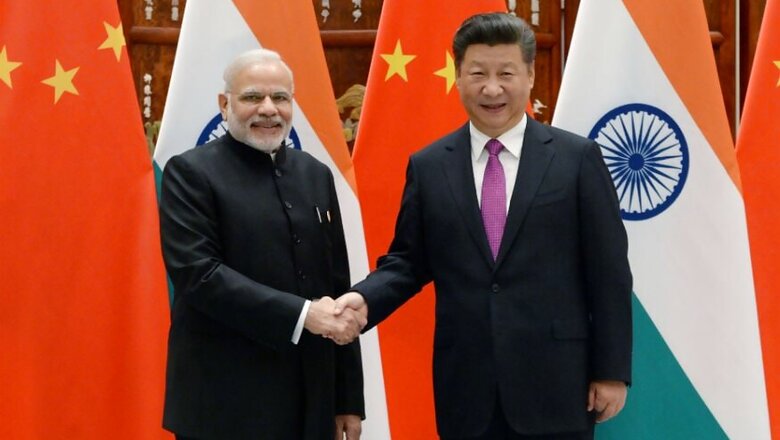
views
Bern/New Delhi: A plenary meeting of the Nuclear Suppliers Group has failed to take a decision on India’s application for its membership, but decided to discuss in November the issue of entry of non-NPT signatories.
China, a key member of the NSG, has been stridently opposing India’s bid primarily on the grounds that New Delhi is not a signatory to the Nuclear Non-Proliferation Treaty (NPT). Its opposition has made India's entry into the grouping difficult as the NSG works on the principle of consensus.
“The NSG had discussions on the issue of ‘Technical, Legal and Political Aspects of the participation of non-NPT states in the NSG’. “The group decided to continue its discussion and noted the intention of the chair to organise an informal meeting in November,” the NSG said in a statement at the end of the two-
day plenary meeting in the Swiss capital Bern.
The 48-nation elite grouping said its relationship with India was discussed, particularly about implementation of the 2008 statement on civil nuclear cooperation with New Delhi.
In 2008, the NSG had agreed to grant India a unique waiver from its rules governing civilian nuclear trade, paving the way for the landmark Indo-US nuclear deal.
“At the plenary meeting, the NSG also continued to consider all aspects of the implementation of the 2008
statement on civil nuclear cooperation with India and discussed the NSG relationship with India," the statement said.
During the plenary, which was chaired by Ambassador Benno Laggner of Switzerland, the NSG member-states reiterated their firm support for the “full, complete and effective” implementation of the NPT as the cornerstone of the international non-proliferation regime.
China’s opposition has made India's entry into the group difficult. Last week, China had said there was no change in its stance on admission of non-NPT states into the NSG. The issue has become a major sticking point in bilateral relations between India and China.
After India’s application for entry into the elite group which controls nuclear trade, Pakistan, China's all-weather ally, too had applied with the tacit backing of Beijing.
Addressing the NSG meeting, president of the Swiss confederation Doris Leuthard reaffirmed Switzerland’s commitment to the work of the group at a time when the “principle of nuclear non-proliferation continued to be at the centre of international stability”.
The NSG also “reconfirmed" their commitment to UN Security Council resolutions, strongly condemning nuclear tests by North Korea.
It also expressed concerns regarding continued global proliferation activities and reaffirmed its determination to continue to cooperate closely in order to deter, hinder and prevent the transfer of controlled items or technology that could contribute to nuclear weapons or other nuclear explosive devices.
The plenary also discussed the NSG’s policies regarding transparency and confidentiality besides deliberating on exchange of information and best practices on licensing and enforcement.
It welcomed the growing number of states that have harmonised their national export control systems with the NSG guidelines and control lists.
The NSG plenary invited all nuclear supplier states to express their responsible approach to nuclear exports by adhering to the NSG guidelines.



















Comments
0 comment